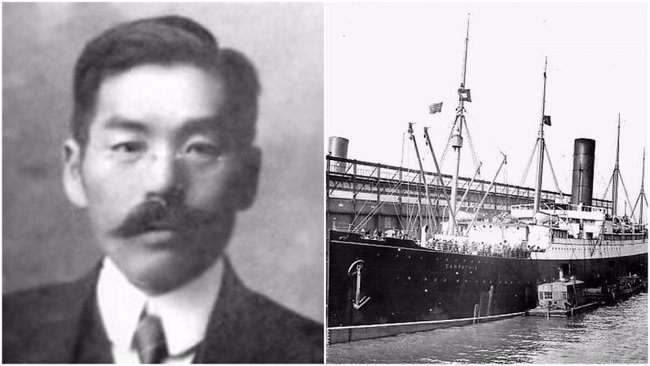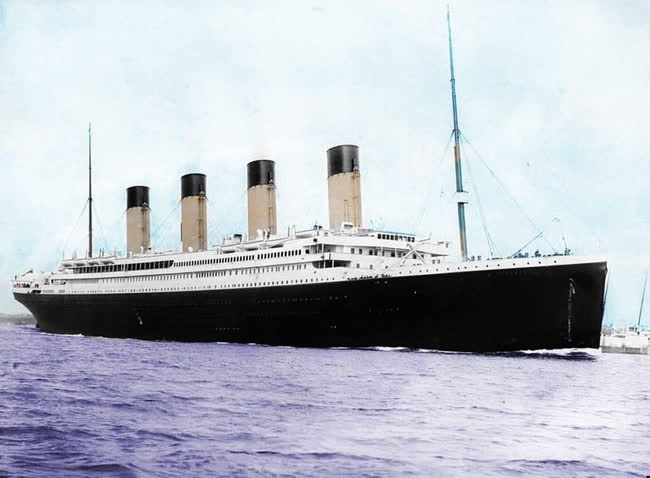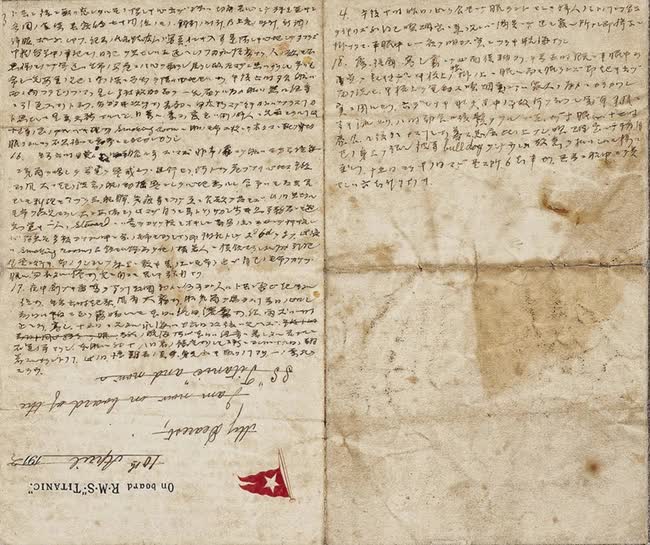Respect for honor, the meaning of virtue, and the concept of shame are three characteristics deeply ingrained in Japanese culture that have persisted throughout history. When a samurai loses his honor, he can only regain it through self-sacrifice. Such an action is considered a heroic death and is honored in the annals of history. This notion was exemplified more than a century ago in the case of Masabumi Hosono, the only Japanese man to survive the sinking of the Titanic, a clear testament to this philosophy.
Survival in the Face of Death
Masabumi Hosono was an employee of the Japanese Ministry of Transportation. His life changed completely after he boarded the Titanic in 1912. At that time, he had just completed a work assignment in England to study the operations of the British railway system. When he boarded the Titanic in Southampton, he had finished his work and was returning home with a second-class ticket on “the ship of dreams.” Masabumi Hosono was also the only Japanese person aboard the Titanic.
On the night of April 14, 1912, the luxurious ship, which was the largest in the world at the time, sank after striking an iceberg, leading to one of the most infamous maritime disasters in history.
At the moment the ship was sinking, Hosono was asleep. A loud bang from his cabin woke him, and he quickly rushed outside. The crew directed him to move down to the lower decks, far from the lifeboats.
Hosono’s horrifying experience during the sinking was documented in a letter he sent to his family. He wrote that he could not “shake off the overwhelming feeling of despair.”
The survivor also shared that he had prepared mentally for the worst and hoped “not to be a burden to anyone as a Japanese man,” while also feeling utterly hopeless as he thought about never seeing his loved ones again.
However, like anyone else in that chaos, Hosono still struggled to find an escape route, trying to navigate his way out and save himself from the icy waters. At a moment when “the lifeboat was just hanging there,” one of the survivors was able to jump into the lifeboat, and he followed suit. Ultimately, Masabumi Hosono became one of only 706 people to survive, unlike the approximately 1,500 others who perished.
Fortunate Survival
Along with the other survivors, Hosono arrived in New York. Initially, there was not much attention given to this Japanese passenger. With the help of a friendly reporter, he eventually returned to his homeland, where the newspapers labeled him “the lucky Japanese boy.”
Hosono received various media attention and even offered interviews to several newspapers in Japan, which brought him fame. However, he was often criticized, and many blamed him for surviving while others perished. Archibald Gracie, another Titanic survivor, had referred to him as “a living disgrace” due to the way he survived.
Japanese newspapers quickly followed suit and publicly criticized Hosono. The media reported that Masabumi Hosono had “taken” the life of another person to survive. As a Japanese person, it was expected that he should possess the samurai spirit, willing to sacrifice himself for others. His actions were labeled as “selfish,” especially since he was a man who left behind family members who might have needed a spot in the lifeboat.
The pressure from public opinion led to Hosono’s resignation from the Ministry of Transportation. Textbooks cited his case as an example of immoral behavior. Teachers publicly proclaimed that Masabumi Hosono’s actions were disgraceful.
Afterward, Hosono was reemployed with the explanation that he was a very capable employee. He continued to work at the Ministry until his retirement in 1939. However, the stigma of being a survivor haunted him, and he did not know whether it was luck or misfortune. He faced disdain from those around him, and he often felt like he was living in a shadow. He never dared to appear in public again. Not only did he bear the title of “survivor,” but he also had to endure the consequences of being labeled, while his family also had to share in the blame.
Before passing away, Masabumi Hosono expressed his deep sorrow in a letter stating that he felt “disdained for just surviving.” Over time, his grandchildren have published this poignant letter multiple times. The final publication of this letter was by his grandson, Haruomi Hosono, a famous musician in Japan. Haruomi Hosono explained that the release of the letter helped the family heal slightly and restore honor to the entire Hosono lineage.
Source: The Vintage News
























